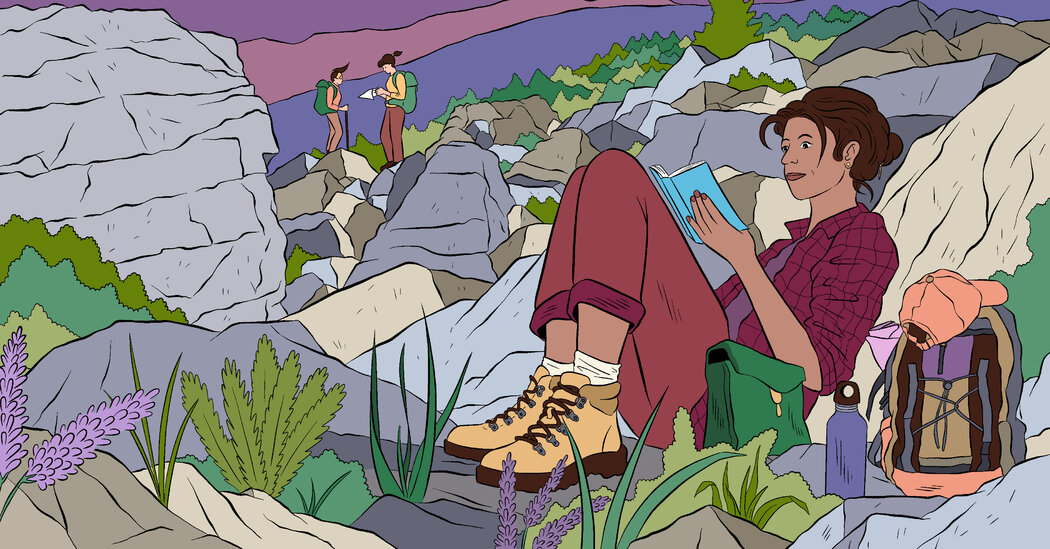What books or authors should I bring along with me?
If you only have room for slim books in your suitcase, bring the poets, who connect our past and present through the sound of spoken language. When I read Maurice Manning’s pointed modern debates with God (whom he calls “Boss”) in “Bucolics,” I can hear James Wright’s high school football players, four generations back, aching with empty prospects as they “gallop terribly against each other’s bodies” in “The Branch Will Not Break.” To simultaneously pray, curse and laugh at our bleak history is sublimely Appalachian, and nobody ever nailed it quite like Jim Wayne Miller; start with “The Brier Poems.”
Frank X Walker’s “Affrilachia,” published in 2000, first gave a name to the Black Appalachian experience, a poetic tradition further enriched by Nikki Giovanni, bell hooks and Crystal Wilkinson, among many others. On my shelves of Appalachian poetry, women slightly outnumber the men. To name one, George Ella Lyon has written at least three poems I’ve put on a list to be read at my funeral. So has Wendell Berry. (Somebody else will have to pare down that list.) Berry’s northern Kentucky farm is not quite in Appalachia, but no writer speaks better for our agrarian spirit and character. Under the quiet surface of such novels as “Hannah Coulter” and “Jayber Crow” lies a reckoning as subversive as his “Mad Farmer” manifestoes. But since we’re still discussing poetry, read “This Day: Collected and New Sabbath Poems.”
Really, though, you should make room for fiction. It would be hard to find a better distillation of Appalachia than Silas House’s first three novels: “Clay’s Quilt,” “A Parchment of Leaves” and “The Coal Tattoo.” The prolific House is also a poet, a playwright and Kentucky’s current — and first openly gay — poet laureate.
My own search for a writerly voice first found purchase in the territory between Lee Smith’s mountain women in “Fair and Tender Ladies” and the twelve heart-stopping stories Breece D’J Pancake left us from his short life. And like every artist I know around here, I’ve been shaped by the polemics of a place where big capital runs up hard against mortal human labor. Denise Giardina’s “Storming Heaven” and Ann Pancake’s “Strange as This Weather Has Been” cover a century of that story in West Virginia’s coal camps. The Cherokee writer Annette Saunooke Clapsaddle, in “Even as We BreatheClick Here to Read the Full Original Article at NYT > Travel…
